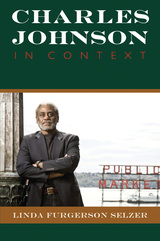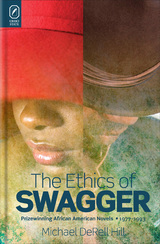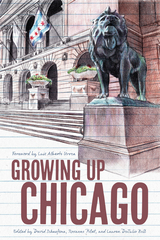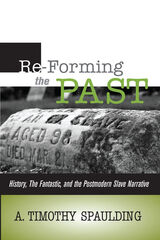4 books about Johnson, Charles

Charles Johnson in Context
Linda Furgerson Selzer
University of Massachusetts Press, 2009
Author of the National Book Award–winning novel Middle Passage, Charles Johnson belongs to a generation of writers who collectively raised African American literature to a new position of prominence during the late twentieth century. In this book, Linda Furgerson Selzer takes an interdisciplinary approach to Johnson's major fiction, providing fresh insight into his work by placing it within a broad historical context. In addition to Middle Passage (1990), Selzer focuses on three other novels: Faith and the Good Thing (1974), Oxherding Tale (1982), and Dreamer (1998). She shows how these works reflect Johnson's participation in the larger cultural projects of several significant but often overlooked groups—young black philosophers who challenged the dominant Anglo-American empiricist tradition during the 1960s and 1970s; black Buddhists of the post–civil rights era who sought to translate an ancient religious practice into an African American idiom; and black public intellectuals who attempted to revive a cosmopolitan social ethic during the 1990s. The cultural histories of each of these groups, Selzer argues, provide important contexts for understanding Johnson's evolution as a novelist. In the academic experience of black students who entered philosophy programs during the turbulent 1960s, the spiritual concerns of black Buddhists who have only recently begun to speak more publicly about their faith, and the cultural issues surrounding the emergence of a new cohort of African American public intellectuals, we see the roots of the social, moral, and aesthetic vision that informs what some have described as Johnson's "philosophical fiction." Selzer's probing analysis of the influence of each of these contexts not only enriches our understanding of Charles Johnson's fiction, it also makes a broader contribution to the cultural history of African America during the past half century.
[more]

The Ethics of Swagger
Prizewinning African American Novels, 1977–1993
Michael DeRell Hill
The Ohio State University Press, 2013
After World War II and well beyond the Black Arts Movement, African American novelists struggled with white literary expectations imposed upon them. Aesthetics as varied as New Criticism and Deconstruction fueled these struggles, and black writers—facing these struggles— experienced an ethical crisis. Analyzing prizewinning, creative fellowship, and artistic style, this book considers what factors ended that crisis.
The Ethics of Swagger explores how novelists who won major prizes between 1977 and 1993 helped move authors of black fiction through insecurity toward autonomy. Identifying these prizewinners—David Bradley, Ernest Gaines, Charles Johnson, Toni Morrison, Gloria Naylor, Alice Walker, and John Edgar Wideman—as a literary class, this book focuses on how they achieved imaginative freedom, recovered black literary traditions, and advanced the academic study of African American writing.
The post–Civil Rights era produced the most accomplished group of novelists in black literary history. As these authors worked in an integrating society, they subjected white narrative techniques to the golden mean of black cultural mores. This exposure compelled the mainstream to acknowledge fresh talent and prodded American society to honor its democratic convictions. Shaping national dialogues about merit, award-winning novelists from 1977 to 1993, the Black Archivists, used swagger to alter the options for black art and citizenship.
[more]

Growing Up Chicago
Edited by David Schaafsma, Roxanne Pilat, and Lauren DeJulio Bell, Foreword by Luis Alberto Urrea
Northwestern University Press, 2021
Growing Up Chicago is a collection of coming-of-age stories that reflects the diversity of the city and its metropolitan area. Primarily memoir, the book collects work by writers who spent their formative years in the region to ask: What characterizes a Chicago author? Is it a certain feel to the writer’s language? A narrative sensibility? The mention of certain neighborhoods or locales? Contributors to the volume include renowned writers Ana Castillo, Stuart Dybek, Emil Ferris, Charles Johnson, Rebecca Makkai, Erika L. Sánchez, and George Saunders, as well as emerging talents. While the authors represented here write from distinct local experiences, some universals emerge, including the abiding influence of family and friends and the self-realizations earned against the background of a place sparkling with promise and riven by inequality, a place in constant flux.
The stories evoke childhood trips to the Art Institute of Chicago, nighttime games of ringolevio, and the giant neon Magikist lips that once perched over the expressway, sharing perspectives that range from a young man who dreams of becoming an artist to a single mother revisiting her Mexican roots, from a woman’s experience with sexual assault to a child’s foray into white supremacy. This book memorably explores culture, social identity, and personal growth through the eyes of Chicagoans, affirming that we each hold the ability to shape the places in which we live and write and read as much as those places shape us.
The stories evoke childhood trips to the Art Institute of Chicago, nighttime games of ringolevio, and the giant neon Magikist lips that once perched over the expressway, sharing perspectives that range from a young man who dreams of becoming an artist to a single mother revisiting her Mexican roots, from a woman’s experience with sexual assault to a child’s foray into white supremacy. This book memorably explores culture, social identity, and personal growth through the eyes of Chicagoans, affirming that we each hold the ability to shape the places in which we live and write and read as much as those places shape us.
[more]

RE-FORMING THE PAST
HISTORY, THE FANTASTIC, & THE POSTMODERN SLAVE NARRATIVE
A TIMOTHY SPAULDING
The Ohio State University Press, 2005
The slave experience was a defining one in American history, and not surprisingly, has been a significant and powerful trope in African American literature. In Re-Forming the Past, A. Timothy Spaulding examines contemporary revisions of slave narratives that use elements of the fantastic to redefine the historical and literary constructions of American slavery. In their rejection of mimetic representation and traditional historiography, postmodern slave narratives such as Ishmael Reed’s Flight to Canada, Octavia Butler’s Kindred, Toni Morrison’s Beloved, Charles Johnson’s Ox Herding Tale and Middle Passage, Jewelle Gomez’s The Gilda Stories, and Samuel Delaney’s Stars in My Pocket like Grains of Sand set out to counter the usual slave narrative’s reliance on realism and objectivity by creating alternative histories based on subjective, fantastic, and non-realistic representations of slavery. As these texts critique traditional conceptions of history, identity, and aesthetic form, they simultaneously re-invest these concepts with a political agency that harkens back to the original project of the 19th-century slave narratives.
In their rejection of mimetic representation and traditional historiography, Spaulding contextualizes postmodern slave narrative. By addressing both literary and popular African American texts, Re-Forming the Past expands discussions of both the African American literary tradition and postmodern culture.
In their rejection of mimetic representation and traditional historiography, Spaulding contextualizes postmodern slave narrative. By addressing both literary and popular African American texts, Re-Forming the Past expands discussions of both the African American literary tradition and postmodern culture.
[more]
READERS
Browse our collection.
PUBLISHERS
See BiblioVault's publisher services.
STUDENT SERVICES
Files for college accessibility offices.
UChicago Accessibility Resources
home | accessibility | search | about | contact us
BiblioVault ® 2001 - 2024
The University of Chicago Press









